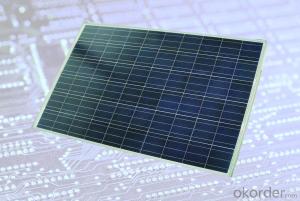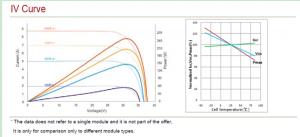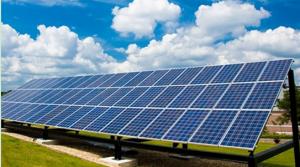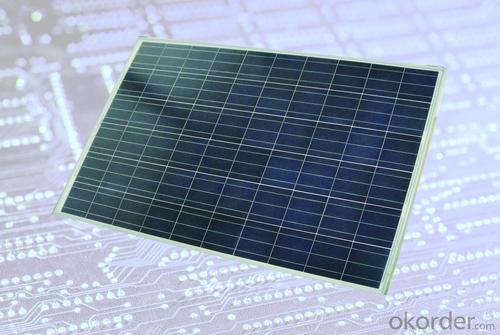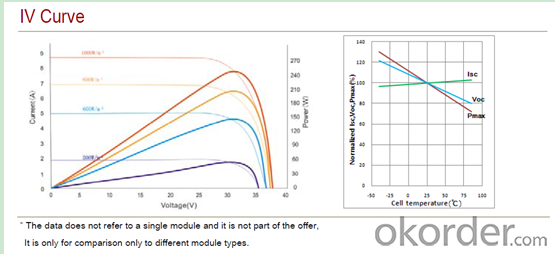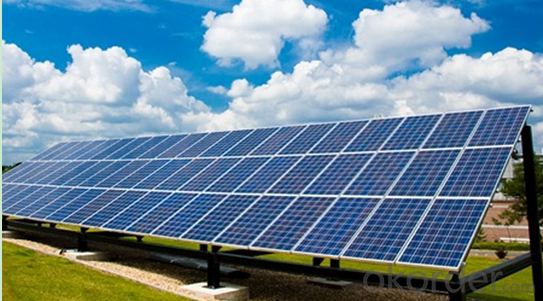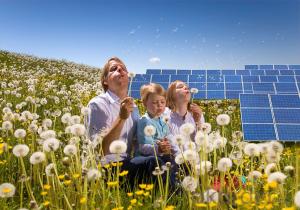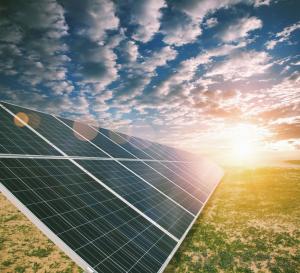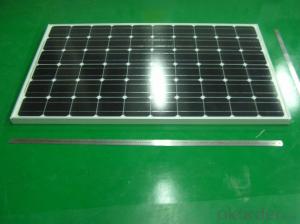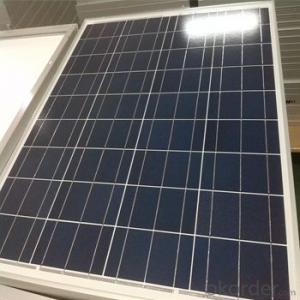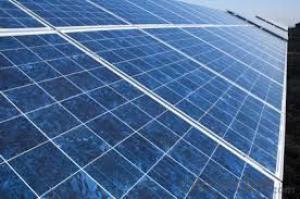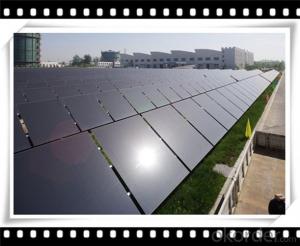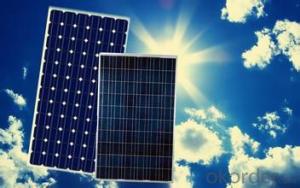Tacoma Solar Panels - High Efficiency Polysilicon Component70w CNBM China
- Loading Port:
- Shanghai
- Payment Terms:
- TT or LC
- Min Order Qty:
- 1 watt
- Supply Capability:
- 99999999 watt/month
OKorder Service Pledge
OKorder Financial Service
You Might Also Like
Description:
Polycrystalline silicon photovoltaic products
There are nearly 20 kinds of current polysilicon component blue sky sunproduction, power ranging from 45W to 300W, details please refer toannex "polysilicon component parameter table".
The products have obtained CE certification, CQC certification, TUV certification.
Model Type | Good Quality 185W Solar Panel |
Peak Power-Pmax(W) | 185W |
Open Circuit Voltage-Voc(V) | 44.2 |
Maximum Power Voltage-Vmp(V) | 36 |
Short Circuit Current-Isc(A) | 5.4 |
Maximum Power Current-Imp(A) | 5 |
Maximum System Voltage | 1000V DC |
Maximum Series Fuse Rating | 10A |
Power Tolerance | -1~+3% |
Temperature Coefficients of Pmax | -0.45%/℃ |
Temperature Coefficients of Voc | -0.348%/℃ |
Temperature Coefficients of Isc | 0.031%/℃ |
Nominal Operating Cell Temperature | 44.5±2℃ |
Standard Testing Condition(STC) | Irradiance:1000W/m²;Temperature:25℃;AM=1.5 |
Qualification Test Parameters | |
Operating Temperature | -40℃~+85℃ |
Storage Temperature | -40℃~+85℃ |
Pressure Bearing | ≥5400Pascal/m² |
Wind Bearing | ≥5400Pascal/m² |
Mechanical Characteristics | |
Cell Size | Mono 125*125mm±0.5 |
No.of Cells | 72pcs(6*12) |
Dimension | 1580*808*40mm |
Weight | 15.5Kg |
Glass | 3.2mm High Transmission,Low Iron |
Frame | Anodized Aluminum Alloy |
Junction Box | IP65Rated |
Internal Diodes | 3 Bypass Diodes |
Cable | 1*4.0mm² Length 900mm |
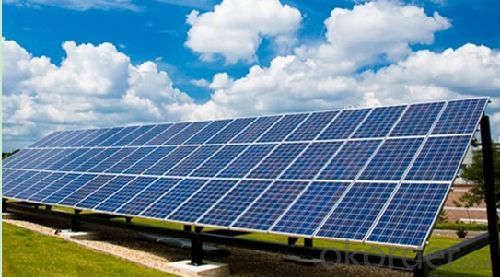
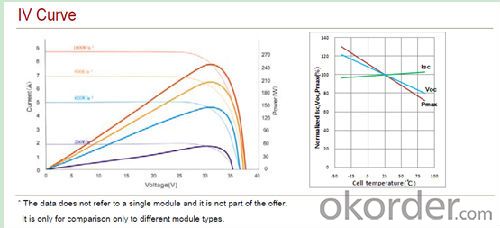
FAQ:What' your products warranty?
Products Guarantee 12 yrs free from defects in materials and workmanship Performance Guarantee No less than 90% within 10yrs and no less than 80% within 25yrs
- Q: Can solar panels be installed on restaurants or food establishments?
- Yes, solar panels can be installed on restaurants or food establishments. In fact, many restaurants and food establishments are increasingly adopting solar energy systems to reduce their carbon footprint and energy costs. Solar panels can be installed on rooftops or other suitable areas to generate clean, renewable electricity for powering various operations within these establishments.
- Q: Are solar panels safe?
- Yes, solar panels are safe. They do not produce any harmful emissions or pollutants during operation, and the technology has been extensively tested and regulated to ensure safety. However, it is important to follow proper installation and maintenance procedures to minimize any potential risks.
- Q: Do solar panels work during a power outage?
- No, solar panels do not work during a power outage unless they are connected to a battery storage system.
- Q: Hi All,I need some resources for a research project i'm doing on Solar Panels/Cells.So do you know of any good books or online materials that basically covers how solar cellwork from level 0 to calculating the energy output based on intensity of the light and the area of the panel. Book titles will be preferable but i'd like to build a strong base before tackling long and complicated formula(s)... so any suggestions? Your help will be appreciated :)THANKS IN ADVANCE!!
- The two wiki links below provide basic explanations that are good starters. They also lead to other information. You do not mention much about the actual project, so I can only guess what level to pitch the answer. In practical situations you will not be able to work out Solar panel performance by a formula, but by looking up the manufacturer's specification (data sheet). From that you have the power in watts that can be drawn from the panel for standard sun which is taken as 000W/m^2 at a standard temperature, usually 25C. Derate the panel for the temperature when it operates in the sun (50-60C).
- Q: Can solar panels be installed on a shopping mall or retail center?
- Yes, solar panels can be installed on a shopping mall or retail center. In fact, many commercial properties are embracing solar energy as a way to reduce electricity costs and decrease their carbon footprint. Installing solar panels on a shopping mall or retail center can provide a sustainable and renewable source of energy while also promoting environmental responsibility. Additionally, it can serve as a visible demonstration of the property owner's commitment to clean energy and attract environmentally conscious customers.
- Q: What is the principle of solar panels to convert solar energy into electricity?
- When the light is irradiated on the surface of the solar cell, a part of the photon is absorbed by the silicon material; the energy of the photon is transferred to the silicon atom, so that the electrons are moved and the free electrons are formed on both sides of the P-N junction to form a potential difference. When the circuit is used, the current will flow through the external circuit to produce a certain output power. The essence of this process is the process of converting the energy of the photon into electrical energy.
- Q: i already have solar/gas water heating, but was wondering if getting solar panels for electricity installed was a good idea.
- Definitely, your idea is a perfect one. Solar electricity panels work well.
- Q: in the afternoon sun heat increases to high level due to which the panels heats up very high now my question is this heat will effect the panels life time and will damage the panels or not ??
- They degrade over time, losing efficiency. They're generally good for several decades.
- Q: How do solar panels impact the energy independence of a region?
- Solar panels can significantly enhance the energy independence of a region by generating clean and renewable electricity. By harnessing the power of the sun, solar panels reduce dependency on fossil fuels, which are often imported from other regions or countries. This increased reliance on solar energy can help reduce the costs associated with importing and transporting traditional energy sources, thus promoting greater energy self-sufficiency. Additionally, solar panels enable communities to generate their own electricity, reducing their reliance on centralized power grids and fostering local energy production. Overall, solar panels play a crucial role in enhancing the energy independence of a region by providing a sustainable and locally-sourced energy solution.
- Q: hi guys, i need help, okay lets say i decide to put solar panels near a place where its inhabitated by people, what kinda of environmental factors should i consider? Will the solar panels cause any damage to the enviromnent around it? Will it affect the plant and animals around it? should i consider the weather? its for my class so if u guys can help thankx.
- I wouldn't worry about what the solar panel is going to do to the surrounding environment, I would worry about what the surounding environment is going to do to the solar panels.
Send your message to us
Tacoma Solar Panels - High Efficiency Polysilicon Component70w CNBM China
- Loading Port:
- Shanghai
- Payment Terms:
- TT or LC
- Min Order Qty:
- 1 watt
- Supply Capability:
- 99999999 watt/month
OKorder Service Pledge
OKorder Financial Service
Similar products
Hot products
Hot Searches
Related keywords
